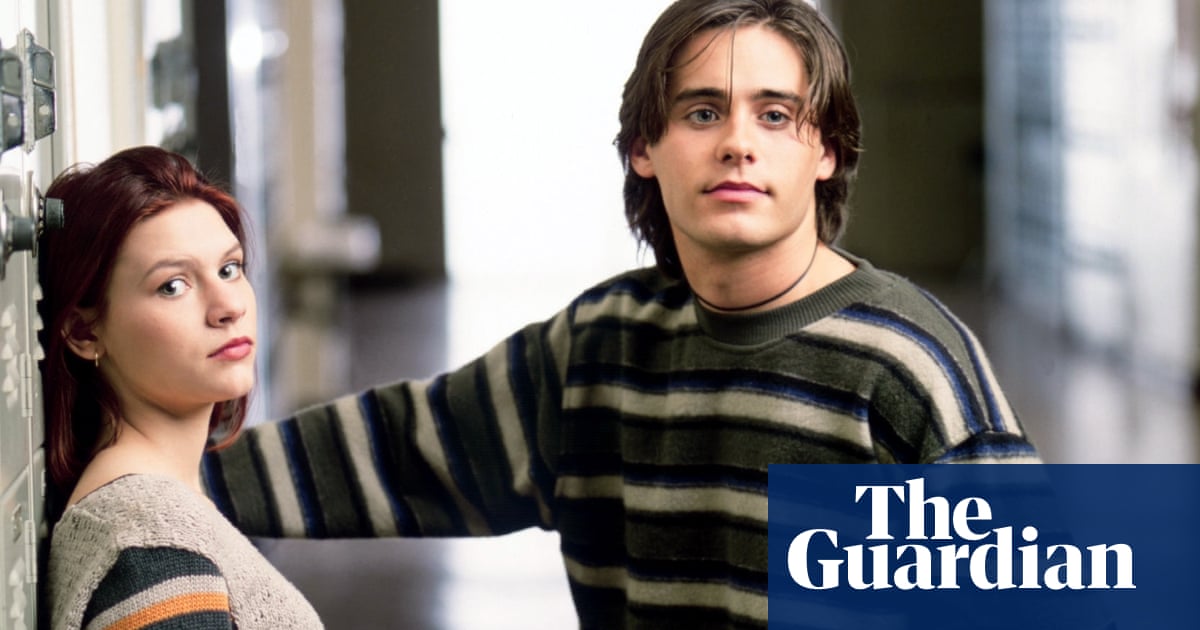Can it really have been 30 years since Angela Chase developed a life-consuming crush on Jordan Catalano just because of the way he leaned? My So-Called Life, created by Winnie Holzman, made its TV debut on 25 August 1994, and over the past three decades, it has stood firm as a cultural touchstone, in part due to making bona fide movie stars of Claire Danes and Jared Leto, who both got their break on the show. But does it still stand up as a TV drama? I went back to my DVDs – it was briefly available to stream in the UK on Disney+, but is not at the moment – and watched it for the first time in a decade. And now, I can very much believe that it’s been 30 years. It looks old, but more curiously, it feels it. It is very much a show of its time, and a different time.
Yet I loved it all over again, for reasons more befitting of an adult, which is why the show was and remains so special. At the time, its portrait of a teenage girl’s life and psyche was revolutionary. This was not a show about teenagers played by 35-year-olds in California; it was about 15-year-olds in a fictional suburb of Pittsburgh, most of whom were working-class, and most of whom had family lives that left them untethered and lost. Guided by Angela’s voiceover, a teen-angst ramble that was always allowed to be flawed and awkward, it looked at complicated friendships, social hierarchies, parents, family, sex, drugs and wild crushes, from inside the mind of its young protagonist. I also saw Inside Out 2 this week, and though Riley is younger than Angela, the guiding principle is not dissimilar. When Angela makes yet another bad decision, you can wonder whether Anxiety or Embarrassment are at the control desk, pulling the levers.
What struck me now is how romantic it is. Not necessarily in Angela’s crush on Jordan, which is both understandable, due to the prettiness that makes him a floppy-haired blank canvas, and also terrible now, viewing as an adult, because of behaviour that I’m sure more emotionally literate teenagers would consider to be “toxic”, though he did get to grow up thanks to an unlikely alliance with Brian Krakow. The real romance is in the friendship at the core of it. Angela ditches her old best friend Sharon Cherski (Devon Odessa) to hang out with the semi-outsiders – the sweet, troubled Rickie Vasquez (Wilson Cruz) and the wild Rayanne Graff (AJ Langer), who drinks, sleeps around and tries to sneak them into clubs. When Rayanne’s mother meets Angela’s mother, Patty (Bess Armstrong), she explains that it’s as if they’re in love. “She wants to be Angela,” she says, and Angela wants to be Rayanne in return.
I had not paid much attention to the adults, first time, and I’m sure this comes with age, but the parents are much funnier than I remembered. When Angela says she “had her hair dyed”, crimson glow, not red, her mother quips, “I thought it dyed of natural causes.” I found myself deeply invested in her husband Graham (Tom Irwin) when he began to consider having an affair, and in Patty who I hoped would soon realise that they shouldn’t work together any more. There were other details I hadn’t noticed too. Angela says “in my humble opinion” because her mother says it; the parallels between their personalities are now clear as day. Rayanne is always hungry, always eating at other people’s houses, because she doesn’t get fed properly at home. When Rickie tells his female prom date that he’s gay, it is genuinely groundbreaking: Wilson Cruz became the first out gay actor to play an out gay character on network TV.
The show has such a huge amount of empathy for all of its characters, not just the leads. This turns out to have been a forced hand, but it gives everyone an astonishing richness, even poor little sister Danielle (Lisa Wilhoit), for whom nobody has the time. One of the show’s executive producers, Edward Zwick, who made Thirtysomething, explains in his just-published memoir that Danes was just so good in her audition that they knew they had to cast her. But, as she was only 15 at the time of filming, they had to follow strict restrictions as to how many hours she could work. That meant they had to give everyone else more to do, hence the broadness and depth.
For all of its maturity, though, My So-Called Life is a product of its era. The pace is far less punchy than today’s TV, the action lingers and the volume of the angst is noticeably lower. This is fascinating, but also oddly sad. One early episode revolves around a gun going off in school. When the kids in class hear the bang, they all run out into the corridor to see what has happened. The parents worry, but the students are mostly blase and sure of their safety. As a brief snapshot of how the world has changed, it is devastating.
There was only one series of My So-Called Life. Zwick says it was subjected to “the death of a thousand cuts” by the network, who didn’t feel that teenagers were an important audience for television advertisers. But, with just 19 meandering, perfectly imperfect episodes, I’m telling you, we had a time. Didn’t we? We did. We had a time.







